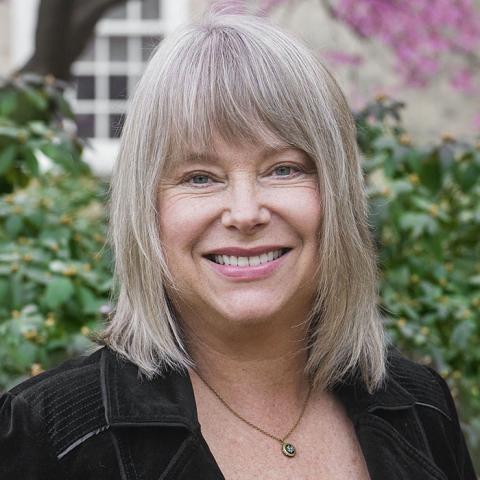Haverford College Welcomes Six New Faculty Members

Clockwise from top left: Rebecca Everett, Matthew Farmer, Qrescent Mali Mason, Nathan Zullinger, Guangtian Ha, and Eric Miller. Photos by Patrick Montero.
Details
This year, new professors joined the Departments of Biology, Classics, Mathematics and Statistics, Music, Philosophy, and Religion.
Joining the faculty as an assistant professor of biology is Eric Miller, who has been working at the intersection of bioinformatics, evolution, ecology and microbiology. He most recently worked as a senior research associate on bacteria pathogen genomics at the University of Cambridge (England). He also has worked as a postdoctoral research associate for a collaborative project at both Leiden University (the Netherlands) and the University of Manchester (England) on bacteria communicating with each other to produce anti-microbial compounds. He worked as a postdoctoral researcher at the Max Planck Institute for Evolutionary Biology in Germany, studying the natural history, evolution, and ecology of Saccharomyces yeast, and has collaborated with faculty at Kiel University (Germany) to develop a master’s level course on antibiotic resistance. Miller, who earned a Ph.D. in Ecology, Evolution, and Animal Behavior from the University of Texas at Austin, will teach courses across the curriculum in biology, including Biology 200 and “Biology Superlab,” as well as advanced seminars in microbiology and bioinformatics.
Rebecca Everett has joined the Department of Mathematics and Statistics as an assistant professor. Everett, who earned her Ph.D. in applied mathematics from Arizona State University, was previously a research assistant professor at the Center for Research in Scientific Computation at North Carolina State University, where she worked on developing models to help improve personalized health treatments. In her highly interdisciplinary research, she collaborates with psychologists, biologists, and health specialists to address problems that include drug resistance in chronic myeloid leukemia cells, immunosuppressant treatment dynamics of renal transplant recipients, and behavior change in problem drinkers undergoing treatment. Everett, who was involved in the Pathways TUME Program (Transforming Undergraduate Mathematics Education), funded by the National Science Foundation, will work closely with Haverford colleagues in mathematics, psychology, biology, and health studies to develop an applied mathematics track in the curriculum, and will contribute to the scientific computing concentration. She also will teach courses in the mathematics program.
The Classics Department welcomes Matthew Farmer as an assistant professor. Before coming to Haverford, Farmer was an assistant professor and director of undergraduate studies in the Department of Ancient Mediterranean Studies at the University of Missouri. His scholarly interests are in Greek drama, and his recent book, Tragedy on the Comic Stage, contextualizes Aristophanes’ approach to tragedy by investigating allusions to tragedy in fifth- and fourth- century comedy. Farmer, who earned a master’s degree in classical studies at Bryn Mawr and pursued his doctoral work at the University of Pennsylvania, has taught a wide range of courses including intermediate and advanced Latin and Greek, as well as introductory and upper level courses in translation. Along with teaching in the Classics Department, he will contribute courses to the Comparative Literature Department’s offerings and to the visual studies minor, and will supervise senior thesis work.
Guangtian Ha joins the Department of Religion as an assistant professor. Guangtian received his B.A. in sociology from China’s Peking University, and earned his M.A. and Ph.D. in anthropology at Columbia University. Before joining the Haverford faculty, he was a postdoctoral research fellow at the School of Oriental and African Studies, University of London. His research interests include Sufism with a particular focus on China and Central Asia. His current manuscript, Sound of Salvation: Voice, Gender and the Sufi Mediascape in China, explores Sufi recitation and music among the Hui living in northwest China, and traces Sufism’s spread through the Middle East and Central Asia. As an anthropologist interested in music, he is well situated to help build connections among the social sciences, humanities, and the arts, and to contribute to the College’s programs in religion, visual arts, music, anthropology, Middle East and Islamic Studies, and East Asian Languages and Cultures. Ha will teach courses such as “The Sense and Senses of Islam,” “Gender and Sexuality in Islamic Texts and Practices,” and “‘Indigenous’ Islam: Race, Gender, Religion.” He also will supervise senior thesis work
Qrescent Mali Mason has joined the Department of Philosophy as an assistant professor. Mason, who was previously an assistant professor of women’s and gender studies at Berea College, earned her doctorate in philosophy from Temple University. Her dissertation, “An Ethical Disposition Toward the Erotic,” focused on Simone de Beauvoir’s early autobiographical writings on the connection between ethics and the erotic. Her current research relies on phenomenology and feminist ethics to further philosophical engagement with issues of race, gender, and sexuality. She also is interested in feminist ethical approaches to sexual violence, and is currently working on a book manuscript titled “Intersectional Ambiguity: Simone de Beauvoir, Black Feminism, and the Difference Difference Makes.” The aim of her teaching, Mason says, is to help her students “to understand that scholarly work does not consist merely of sets of essays and books written by people from the past, but of critical engagement with ideas that affect our everyday lives and remain pertinent to how we live.” She will teach courses in philosophy and contribute to other curricular programs, including Africana Studies, Gender and Sexuality Studies, and Peace, Justice, and Human Rights.
Nathan Zullinger joins the Music Department as an assistant professor. He also will serve as director of the Choral and Vocal Studies Program, and as conductor for the Bi-College Chorale and Chamber Singers groups. Zullinger, who has a B.S. in music education from Messiah College and both a master’s degree in conducting performance and a doctorate in choral conducting from Boston University, has led choral ensembles in university settings, including The Cantata Singers at the University of North Carolina School of the Arts. An accomplished singer and pianist, he collaborates regularly with professional singers and instrumentalists, and partners with community and faith-based choirs. He also has an interest in student mental health and in developing pedagogical methods to help alleviate performance anxiety and improve practice outcomes. About his approach to teaching, Zullinger says: “I am not only interested in offering the highest level of instruction, guided by the realities of the individuals in front of me, but also in developing citizens who can use their creative skills as a means of uncovering truth, beauty, and understanding in a challenging world.”




